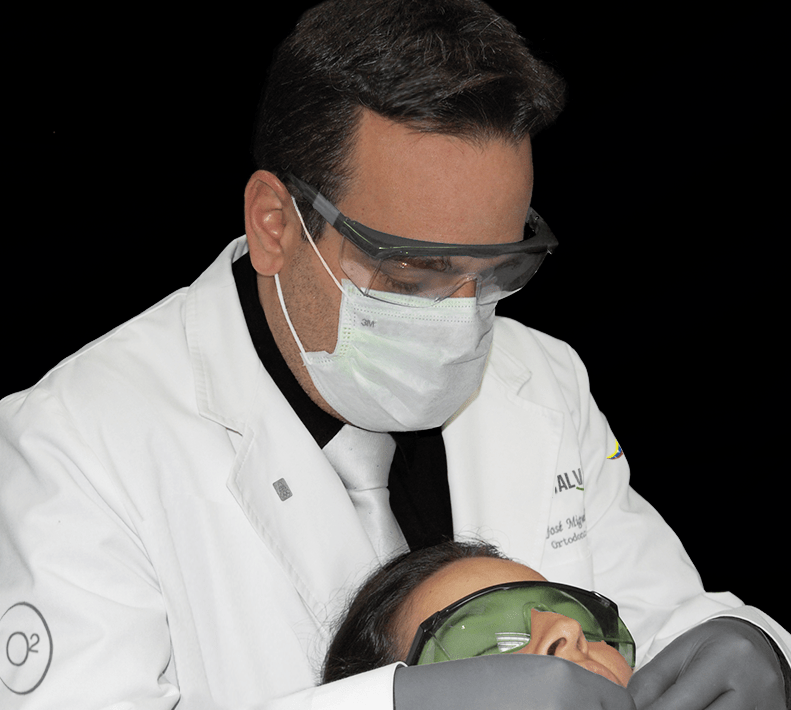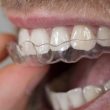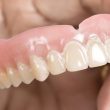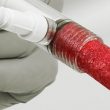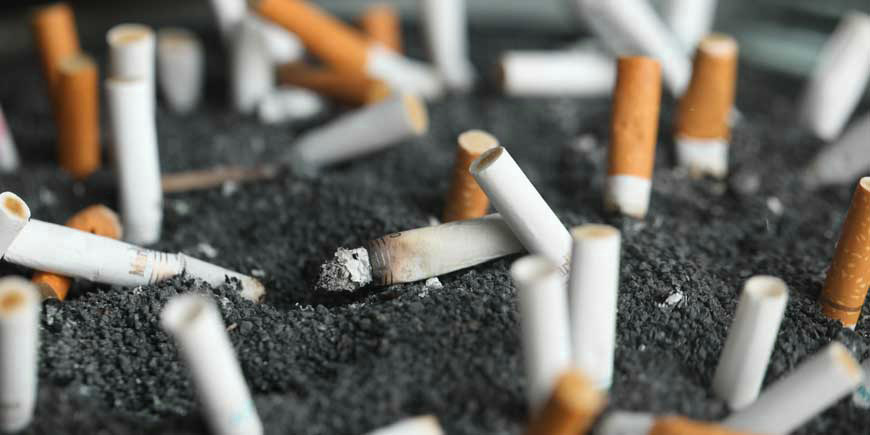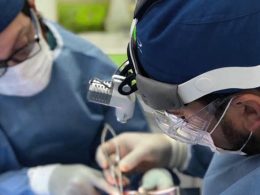Table of Contents
The habit of smoking is very common in societies around the world. The objective of this article is to clarify doubts about the effects of tobacco addiction on dental implants.
Although smoking is a risk factor for implant failure, it is not considered an absolute contraindication for implants. When planning implant treatment, it is normal to inquire about the patient’s smoking history and specify the duration, intensity, and frequency of the habit; in times past and in the present.
Dentists should always encourage smokers undergoing oral or dental implant-related surgical procedures, to quit smoking, emphasizing that the habit can increase complications and reduce the success rate of these procedures.
Many times, the professional will have to decide whether or not to start a treatment with implants in particular situations of greater risk, but once the decision has been made, the informed consent of the patient is essential to avoid misunderstandings; and above all, any demand or legal action in case of failure.
Smoking and Oral Health
With regard to oral health, smoking increases the risk of periodontal disease, precancerous and neoplastic oral lesions, root caries and periimplantitis. It also causes taste alterations, pigmentation in teeth and restorations, and delayed wound healing after extractions, periodontal procedures, and orthognathic surgeries.
Among many other biological effects, smoking raises the levels of pro-inflammatory cytokines such as interleukin-1, which contributes to greater tissue damage and alveolar bone resorption. Nicotine can also have a negative effect on the synthesis of cellular proteins at the oral level and deteriorates the adhesion capacity of the gingival fibroblast, which interferes with the healing of wounds in the area, and also, aggravates the progress of periodontal disease.
The exact mechanism of action by which smoking compromises wound healing, is unknown. Several hypothetical mechanisms include the cytotoxicity of nicotine, carbon monoxide and hydrogen cyanide on collagen cells; vasoconstriction and decreased tissue perfusion due to catecholamine release, increased platelet adhesiveness and blood viscosity which increases the risk of microvascular occlusion, increased levels of fibrinogen and carboxyhemoglobin and interferences in the function of polymorphonuclear leukocytes.
The truth is that, be that as it may, tobacco negatively affects the result of almost any therapeutic procedure performed in the oral cavity, without any discussion!
What Happens to Dental Implants?
Clinical trials on endosseous implants consistently rank smoking as a primary, patient-centered, risk factor for implant loss.
Studies report dental implant failure rates in smokers ranging from 6.5% to 35% in the first year alone. The negative impact of smoking on the outcome of implant treatment may be related to multiple factors, and its mechanism may be mediated by both local and systemic biological pathways.
Some studies show that vasoconstriction caused by local absorption of nicotine into the bloodstream is a significant factor in implant failure. Others have found that increased tobacco use is directly associated with increased implant failures, primarily in heavy smokers (30 or more cigarettes a day). Some researchers have suggested that higher arginase activity may lead to lower nitric oxide production, consequently increasing susceptibility to bacterial infections and implant failure in smokers.
Apparently, smoking hardly affects the osseointegration process, rather, its negative effects seem to emerge after second stage surgery (exposure or discovery of the implant). Once implants are uncapped, the surrounding soft tissues are adversely affected by tobacco, much like the periodontal tissues of a natural tooth. This phenomenon suggests that increased implant failure in smokers is not the result of poor healing or osseointegration, but rather the exposure of peri-implant tissues to tobacco smoke.
Tobacco addiction also has a major influence on long-term implant complication rates. It causes significantly greater marginal bone loss than in non-smokers after implant placement, increases the incidence of peri-implantitis (inflammation of the peri-implant mucosa, formation of deep mucous pockets and increased resorption of the peri-implant bone) and affects rates longevity of bone grafts.
Patients who combined smoking and poor oral hygiene, experienced approximately three times more bone loss after 10 years, than non-smokers.
What to Do Then If I Smoke and Need Implants?
Without a doubt, the best thing would be to definitely quit the habit!
However, if this is not possible, various protocols have been recommended to increase implant survival in smoking patients. Most of them agree on 6 fundamental considerations:
1- The patient must stop smoking, at least, 1 week before surgery; to allow the reversal of the increased levels of platelet adhesion and blood viscosity, as well as the short-term effects associated with nicotine.
2- The patient must completely avoid smoking for at least 2 months after implant placement, at which time bone healing will have progressed to the osteoblastic phase and, at least, early osseointegration will have been established.
3- Preoperative antibiotics should be prescribed to reduce the risk of surgical or perioperative infections, and place only high-end implants in these patients.
4- In the medium and long term, try to gradually reduce the number of cigarettes per day, and if possible, the concentration of nicotine they contain.
5- Increase the frequency of regular check-ups to 3 per year, to more closely monitor plaque and dental calculus rates.
6- Reduce and control, as far as possible, other risk factors such as general health condition, poor oral hygiene and the presence of parafunctional habits.
The Reality in Daily Clinical Practice
The reality is that a high percentage of patients who request dental implants are smokers, and they rarely abandon the habit or give up the procedure; despite knowing their greater susceptibility to infections, complications and therapeutic failures.
At DENTAL VIP we treat many cases of this type per year, as long as the patient is well informed and aware of his situation.
The scientific community does not have any evidence that contraindicates the use of dental implants in smoking patients, and even less, that the habit is a certain death sentence for all cases. Proof of this is that in our records we have several smoking patients who, after 15 years, still maintain the vast majority of their dental implants in good condition.
However, no one can question the countless clinical trials showing that implants and cigarettes are not good friends, and that smoking is one of the main risk factors for premature implant loss and short-lived treatments.
Cheer up, take advantage of this opportunity to quit smoking and fully enjoy the benefits of this innovative dental alternative.
“Dental Implants Are Not Contraindicated in Patients Who Smoke, as Long as They Understand that There Is a Greater Risk of Rejection or Failure of the Treatment”.
DENTAL TIP
Take Care of Your Health by Saving Money!
DENTAL VIP has years of experience in helping patients get the best possible treatment at the best possible price, by travelling to Venezuela for their dental makeover. Whether you wish to rule out any oral injury, have a biopsy, undergo maxillofacial surgery or rehabilitate your entire mouth, it is amazing how much can be done in a short space of time with the right dental team and technology.
If you have never travelled to Caracas before we can quite literally organize your whole dental trip. From your initial quotation, sourcing your flight tickets and hotel along with getting you to DENTAL VIP to undergo your treatment and back to your hotel again. It is our job to make this easy for you, just as we already have for hundreds of patients across the globe.
Being the largest facilitator of dental treatments in Venezuela, we are known in the industry for our quick and professional response. Get in touch today via WhatsApp +58 414-9033547, social networks or Email to find out how we can help you regain your health and achieve the confident smile you have always wanted.
